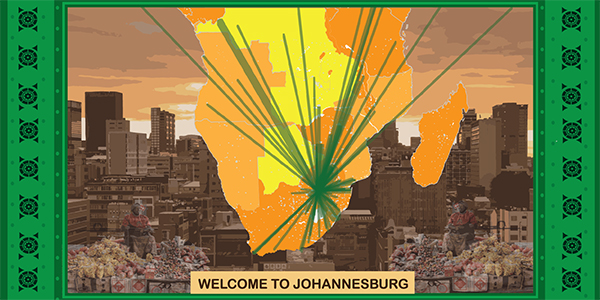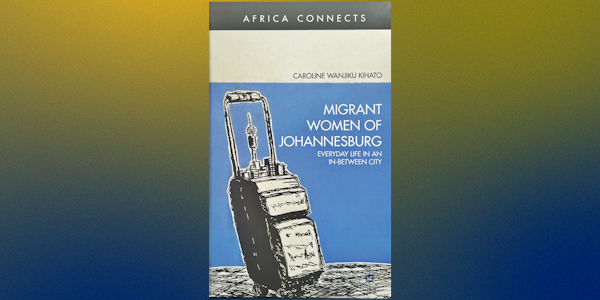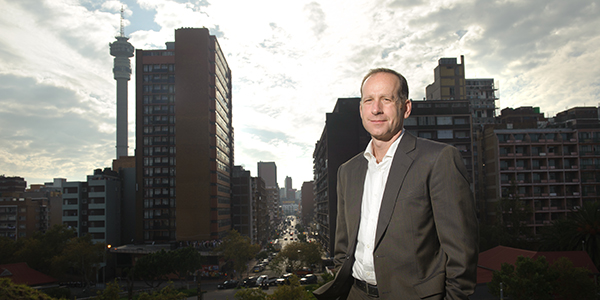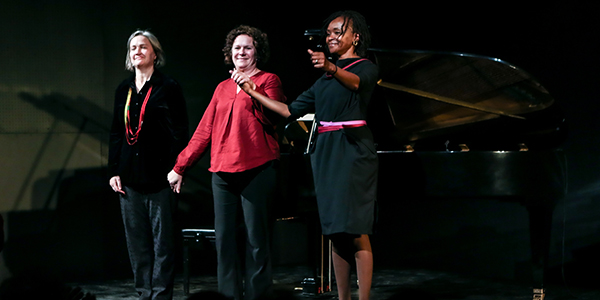Chair in Mobility and the Politics of Difference supports Gender and Geography
- Wits University
The 18th international architectural exhibition in Venice showcases urban spaces in the Global South - with African cities front and centre.

La Biennale Architettura runs from 20 May to 26 November2023.
You Will Find Your People Here is part of exhibition curator Lesley Lokko’s special project, Gender and Geography.
This special project features the book by sociologist Caroline Wanjiku Kihato, Migrant Women of Johannesburg: Everyday Life in an in-between City, published by Wits Press.

A migrant to Johannesburg herself, Kihato was previously in Urban Planning in the School of Architecture and Planning at Wits and is now associated with the University’s African Centre for Migration & Society (ACMS).
.jpg)
‘A new language to speak about mobility and African cities’
The Mellon Foundation Mobility, temporality, and Africa’s future politics project at Wits provided support for the exhibition, as did the ACMS, and the Migration Governance Lab at Wits and Oxford University.
Dr Kabiri Bule, a postdoctoral Research Associate at ACMS, provided technical support.
The project is aligned to the general goal of Professor Loren B. Landau’s SARChI Research Chair in Mobility and the Politics of Difference in the ACMS.

“What will go on show is a mix of music, images, and the written word that envelop themes and text from Kihato’s book across multiple media, with composers, artists, and analysts from many parts of the continent and beyond,” says Landau, who collaborated closely with the project’s primary leads. “We need a new language to speak about mobility and African cities. This is one way to further that conversation.”
You Will Find Your People Here
Nestled between performance, film, composition, and exhibition, is a collaborative, interdisciplinary work by pianist Mareli Stolp (South Africa), sociologist Caroline Wanjiku Kihato (Kenya), composer Clare Loveday (South Africa), and artist Sedinam Awo Tsegah (Ghana).
The thirty-minute film, You Will Find Your People Here, premièred at William Kentridge and Bronwyn Lace’s Centre for the Less Good Idea in Johannesburg in July 2022.
Kentridge and Lace are both alumni of Wits University.

The film presents composer Clare Loveday and pianist Mareli Stolp’s creative response to the migrant women’s testimonies collected in Kihato’s book, Migrant Women of Johannesburg: Everyday Life in an in-between City.
Fabric maps on language diversity, family connections, and women’s mobility to Johannesburg adorn the walls, unsettling how we understand urbanity, social-worlds, and family. The maps draw on data collected by the Wits-Oxford Mobility Governance Lab in 2021.
Amplifying the experiences of migrant women in Johannesburg
Johannesburg is a global city remarkable for its affluence, inequity, and diversity. Roughly one in two Johannesburg residents were born elsewhere; one in five outside the country. In the city’s gateway neighbourhoods, few plan to stay. Lives are shaped by transience, ambition, uncertainty, and anxiety. In the shadows of repurposed office blocks, new arrivals dodge predatory police and hostile citizens. As they negotiate the unfamiliar, they continually refashion the space around them.
The installation moves us from census to senses; from demography and demagoguery to the fashioning of human futures.
Demagoguery refers to political activity or practices that seek support by appealing to the desires and prejudices of ordinary people rather than by using rational argument.

